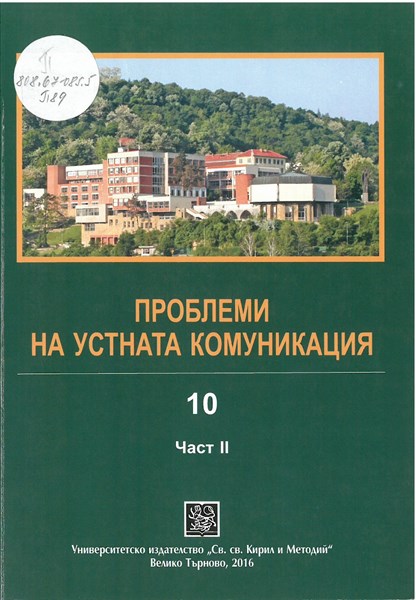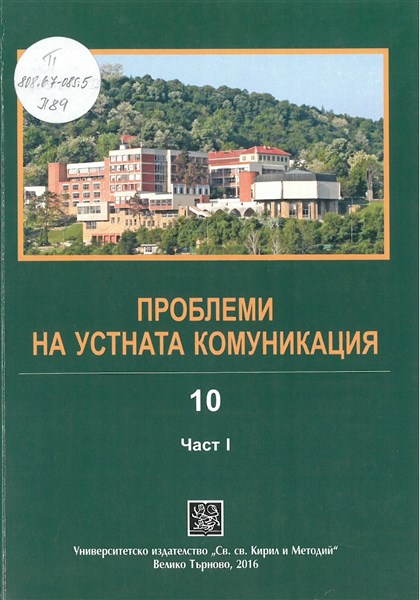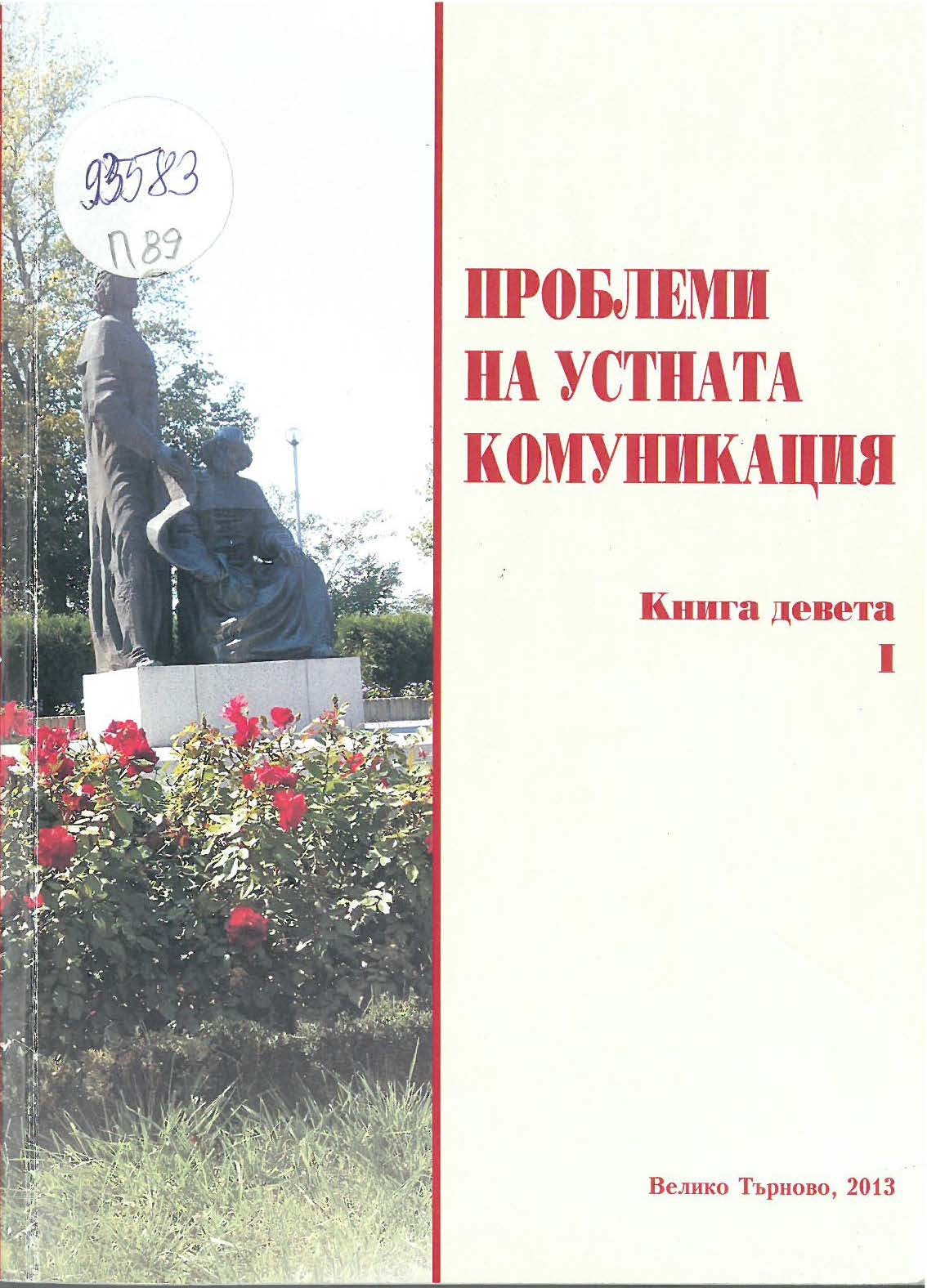
Манипулация и емпатия
The article analyzes linguistic empathy viewed as one of the instruments that have a considerable manipulative potential. We refer to the realization of linguistic empathy in the sentence and to the possibility for its realization as means for constructing texts, as speech tactics, and in some discourses – as communicative strategy as well.
More...

